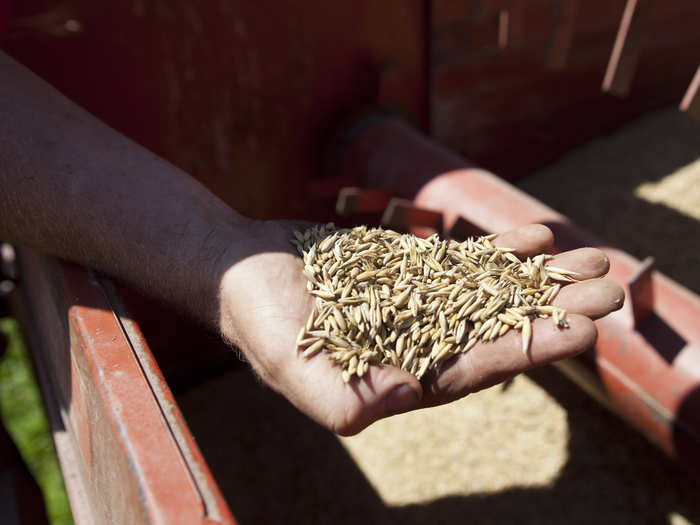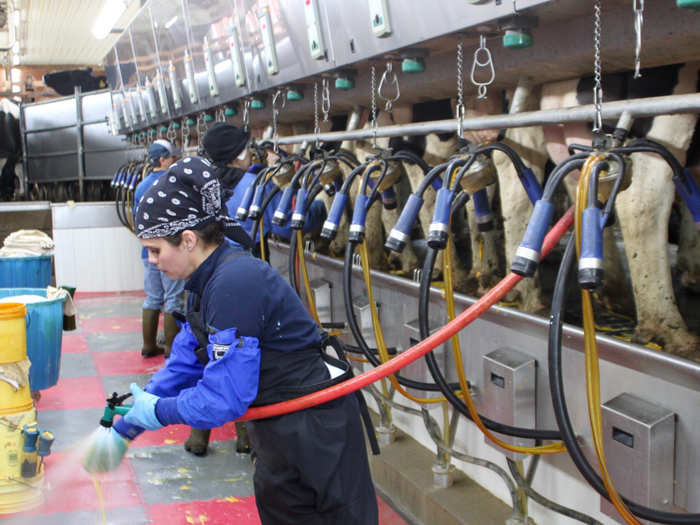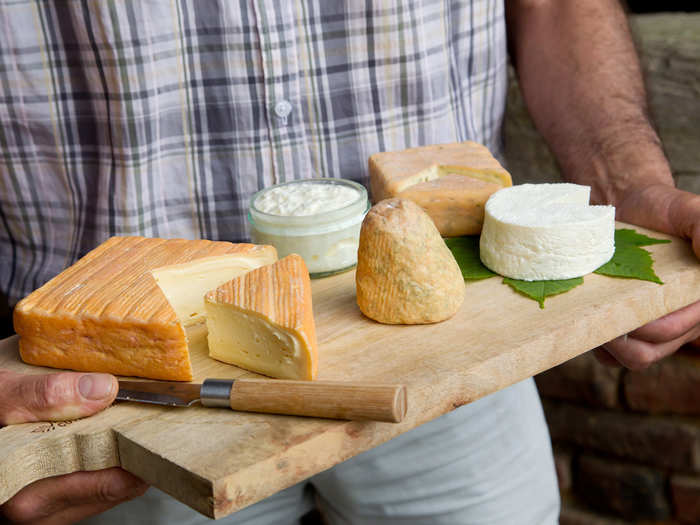- Home
- slideshows
- miscellaneous
- Forget almond, soy, and even dairy milk: Oat milk should be the only milk you drink. Here's why.
Forget almond, soy, and even dairy milk: Oat milk should be the only milk you drink. Here's why.
Soy milk

Almond milk

Environmental impact: Almond milk is much worse for the environment than other plant-based milks. It requires much more water to produce than any other common non-dairy milk, and almost all almonds are produced in one region of often-drought-stricken California. Almond farming is also threatening America's bees, which are vital to the survival of, well, everything.
Taste: Almond milk's taste and texture are lacking at best. Almond milk isn't a good substitute for dairy milk's culinary uses — you can't put almond milk in your mashed potatoes. It's also a no-go for people with nut allergies. The only culinary value almond milk has is as an ingredient in some Iranian and Italian foods.
Rice milk

Environmental impact: Rice milk should also have a limited place in our cups. Sure, it's nut-free and relatively hypoallergenic, but it also has a far larger environmental impact than soy or oat milk. The methane in rice paddies produces more emissions than other plant-based milks, and production uses six times the amount of water that oat milk requires.
Taste: It's great in horchata, but its watery, neutral taste makes it a poor substitute for dairy in cooking or in coffee. It just doesn't taste like anything, really, and it's relatively devoid of nutrients with almost no protein and no naturally occurring vitamins or minerals.
Oat milk

Environmental impact: Oat milk happens to be very environmentally friendly. It produces relatively few greenhouse gases — second to almond milk — and uses up one-eighth the amount of water that the latter uses.
Taste: Oat milk is by far the best-tasting of the plant-based milks. It has a similar consistency to dairy milk, making it the most viable alternative in home cooking and in coffee shops. Baristas already love it. And since oat milk is not nut-based or soy-based and oats are gluten-free, it contains very little that people are allergic to or unable to digest.
But, you may ask, if our goal is to mimic dairy milk, then why not just keep drinking dairy milk?
Dairy milk

Dairy milk, the tried-and-true classic milk choice, sets the taste standard for all other milks. Its richness is unmatched, and its uses in cooking are deeply and widely entrenched.
But dairy milk production has by far the highest environmental impact of any milk. According to the BBC's calculator, on average, drinking a glass of dairy milk a day for a year is equivalent to driving 585 miles in a gas-powered car and showering for 5,624 minutes, and it requires the space of two tennis courts to produce. It takes up more than three times the resources of oat milk production.
Still, dairy milk is likely here to stay.

There are products like yogurt and cheese that can't be made without dairy milk. Dairy milk will likely live on in these forms, as suitable alternatives have yet to be widely produced. But a suitable alternative for liquid dairy milk is finally here, potentially rendering it obsolete.
The pressure that dairy milk production puts on our environment isn't worth the taste. Now that we have oat milk, it's high time we weaned ourselves off it.
Popular Right Now
Popular Keywords
Advertisement